On World Water Day, we’re writing from the Amazon, the biggest watershed in the world. Every year, this mighty river carries 20% of our planet’s freshwater to the sea. Every second, the Amazon releases around 200,000 liters of freshwater into the Atlantic Ocean.
The communities who have made this region their home for millennia have developed lives and cultures intertwined with the world of water. For Indigenous peoples, water isn’t just a resource – it is alive, sacred and deeply connected to their cultures and spirituality.
In honor of World Water Day, we want to bring you some reflections on the sanctity of water and its spirits from five inspiring Indigenous water defenders.
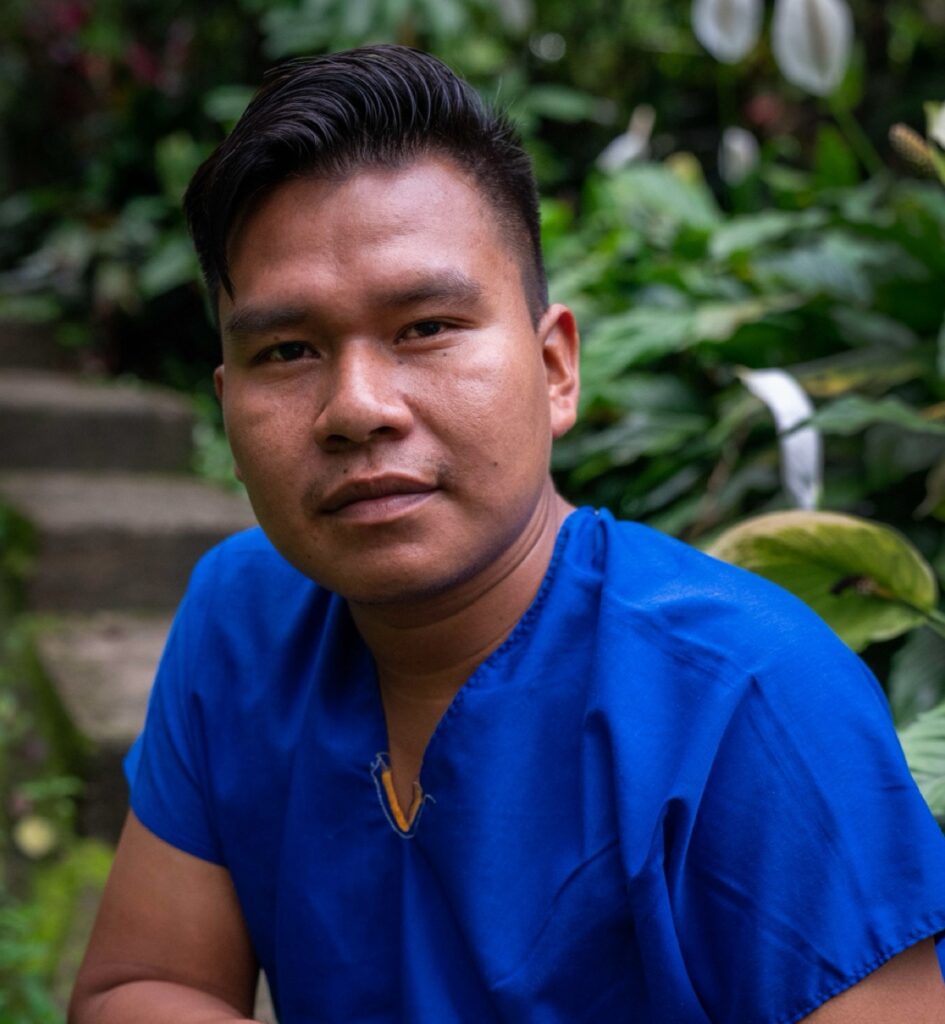
“Our people have always lived by the shores. Water brings us food and connects us to the water spirits.
Our elders communicate with these beings through yagé (ayahuasca).
Our elders’ stories remind us to protect all beings, even those that are invisible. But environmental pollution is distancing us from these connections with these spiritual beings.”
Ribaldo Piaguaje, Indigenous filmmaker from the Siekopai Nation
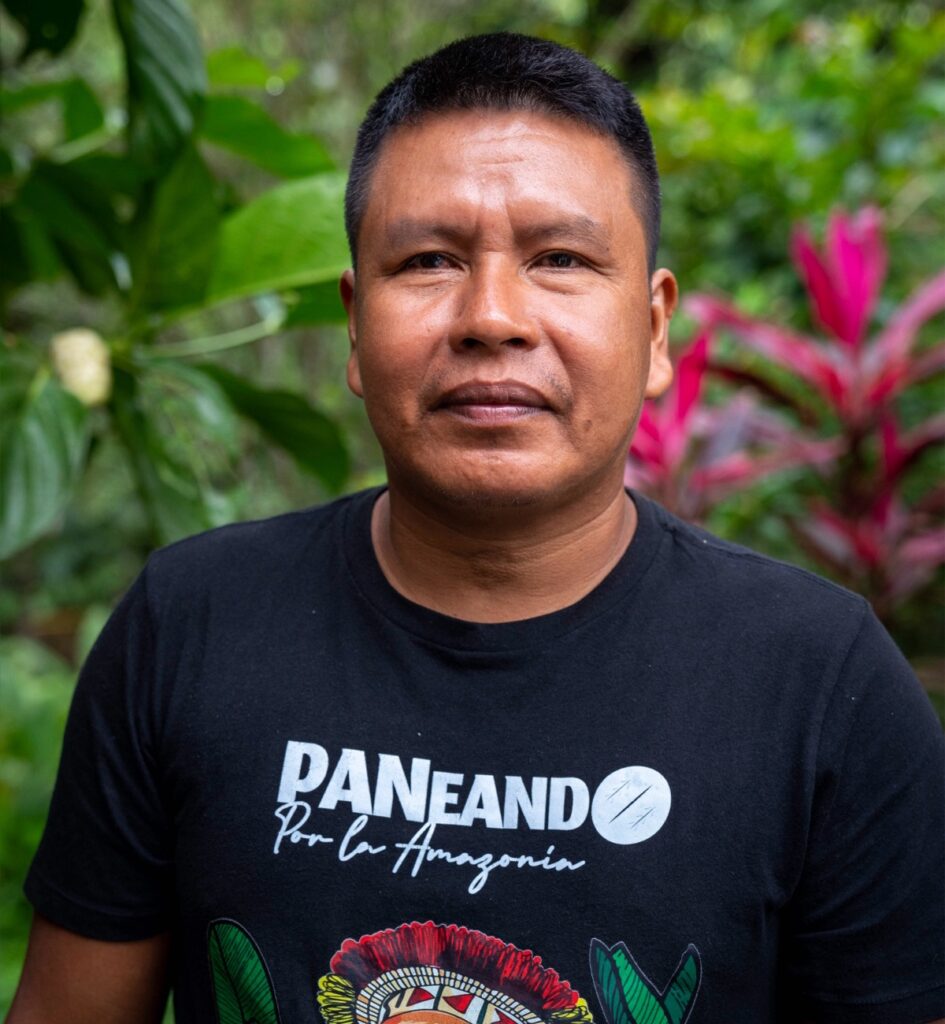
“We must become conscious that human beings are not the only ones who are living and that water is not only for drinking: there are many beings alive in water and therefore it must be well cared for. Water has become more scarce recently. There are intense droughts that last for several months. Something is happening.”
Siekopai leader Wilmer Piaguaje, grandson to the great spiritual leader Don Cesareo
Rainforests play a critical role in generating the world’s water supply by producing rain. Protecting these ecosystems and the Indigenous populations that rely on them is vital to prevent water scarcity not only in the Amazon rainforest but also in other ecosystems that depend on it.
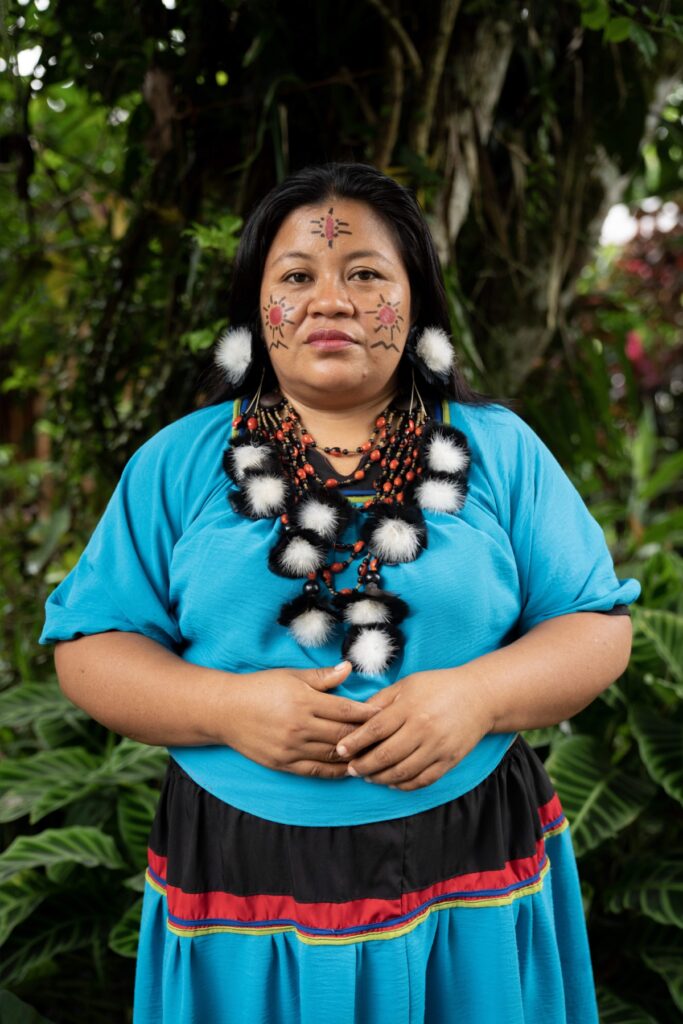
“My grandfather told me that the spiritual beings of the water are Kanjansi (boa) and Añuchu pûshe’sû – people who live inside the river. They are very sacred since they are owners of the water and all the fish.
The boa (male) is the owner of the fish. When people make noise, he leaves with all his fish and we, humans, are left without food.
Añuchu pûshe’sû is a woman of great beauty who becomes upset when she sees contamination. For instance, when we give birth and wash the clothes of our babies, or when we are menstruating and bathe in the river, she does not approve and she may cause harm to our babies.
Whenever there is an oil spill, the contamination and the bad smell of the water bothers these spiritual beings and they leave. Consequently, we are left without fish to feed ourselves.
Gladyz Vargas, A’i Cofán Leader & member of the leadership council of the Ceibo Alliance
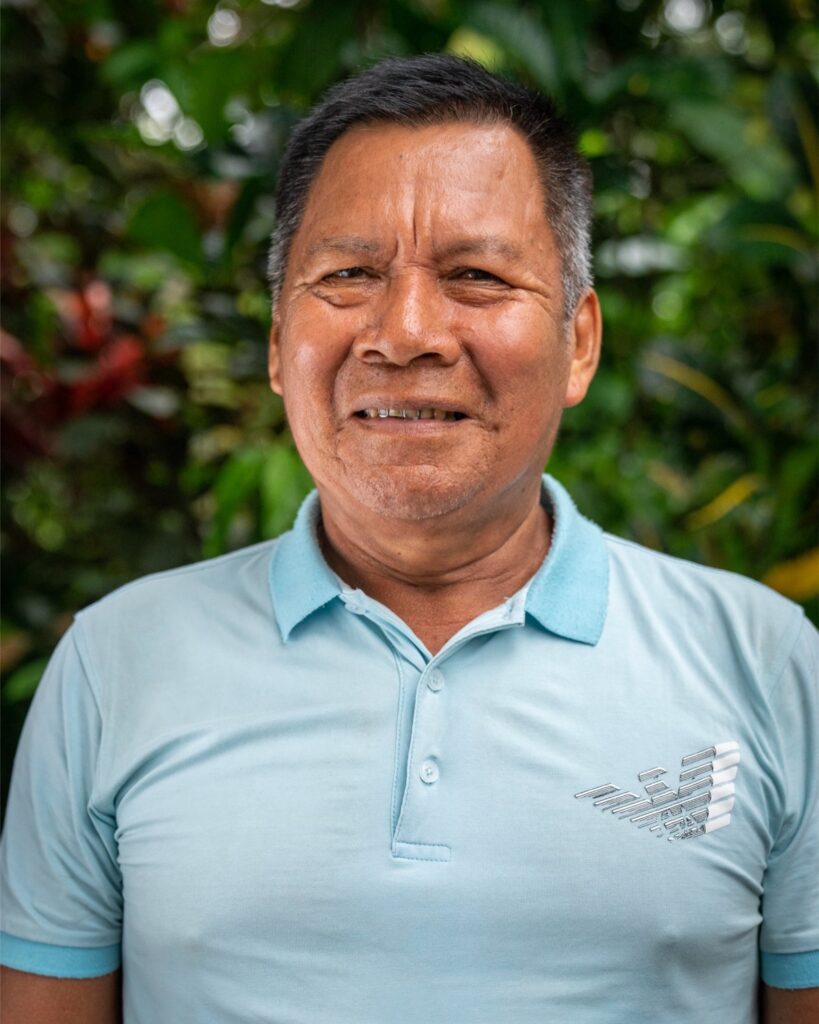
“We no longer hear the noise of Añuchu pûshe’sû. The large boas on the banks of our rivers are gone. This loss has happened as a result of oil pollution – none of these beings live where there is pollution.
Imagine this: they get angry with just a drop of blood falling onto the surface of the water – so with oil pollution, it is even worse, especially with the strong smell. They escape away! That is why we have no fish in the water.
Also, we no longer have our shamans who used to make contact with these aquatic spiritual beings.”
Emergildo Criollo, leader from the A’i Cofán Nation
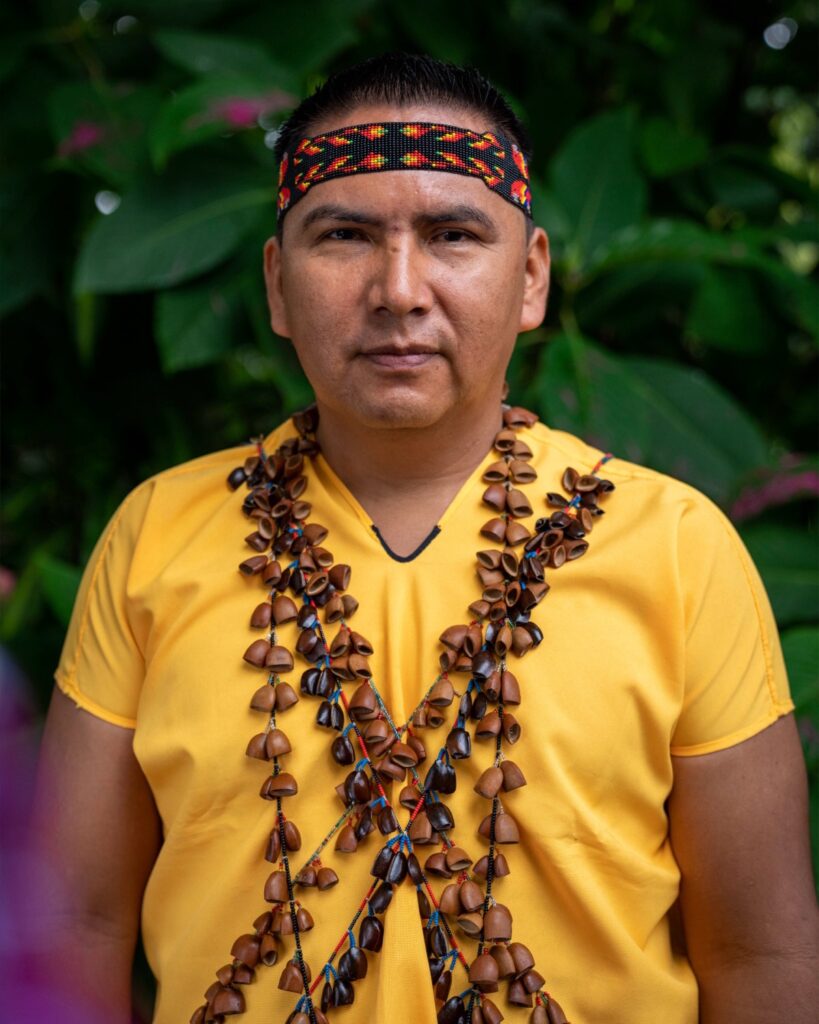
“As Indigenous peoples of the Amazon, we have noticed a significant change. In the past, we experienced well-established seasons with predictable rainfall and shifts between winter and summer. However, this has changed dramatically. We are no longer certain when droughts or floods will occur. This unpredictability has left us with a sense of foreboding – the world may end if we do not take action to protect nature. As human beings, we must take action for nature, for water. We need to stop polluting”
Hernán Payaguaje, leader of the Siekopai Nation
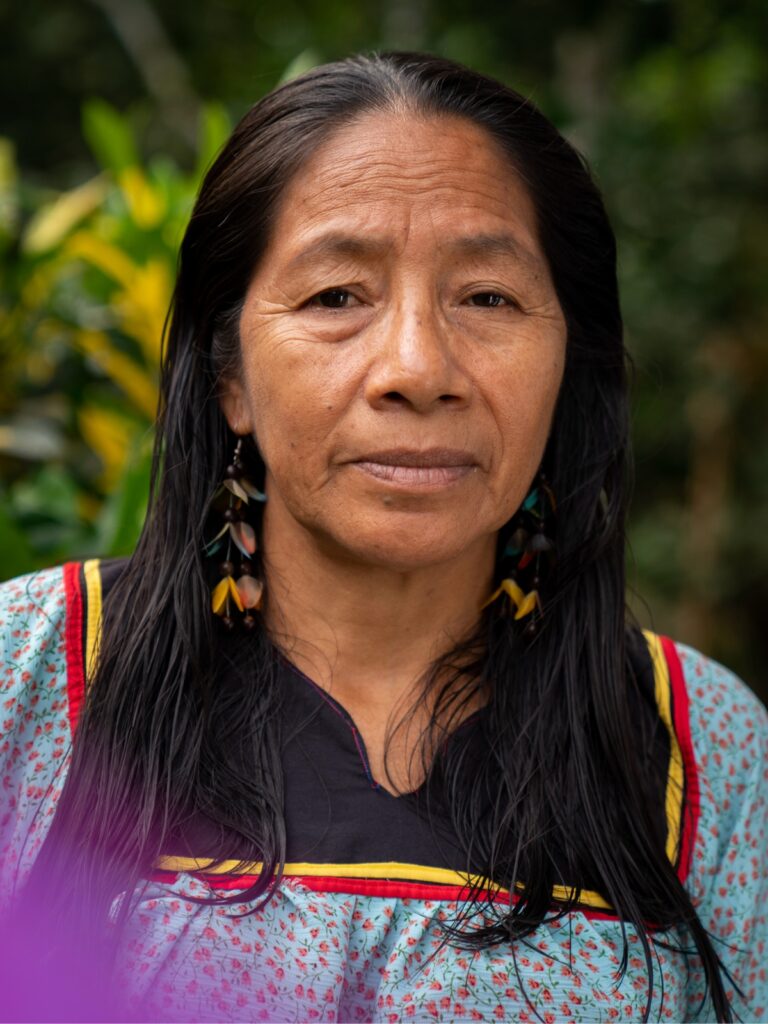
“Yacumama is the one who takes care of all the water. In the Kichwa language, she is an anaconda, the mother of rivers. Wherever she is, fish abound and whirlpools are formed, so you have to be very quiet and respectful.
As Indigenous peoples, we have respect for the spiritual beings. People from the outside world only see a river to bathe in, a forest and nothing else. That is why we have to create awareness: water must be respected, the rivers must be respected, and the forest must be respected.
We have to create consciousness around the planet. World leaders and governments must understand that the Amazon is not just a forest, there are many spirits, and we all depend upon them for life.”
Alicia Salazar, Siona leader and member of the leadership council of the Ceibo Alliance
In the face of massive threats including climate change, extractivism and biodiversity loss, Indigenous peoples are fighting to keep our planet’s water system in balance.
Indigenous peoples need our backing more than ever so that they can ramp up their defense of the most intricate and biodiverse water system in the world. If current deforestation rates continue unchecked, the Amazon’s rainfall will soon be drastically reduced, drying up rivers and the rainforest, and dramatically altering our planet’s climate, health, and freshwater resources.




